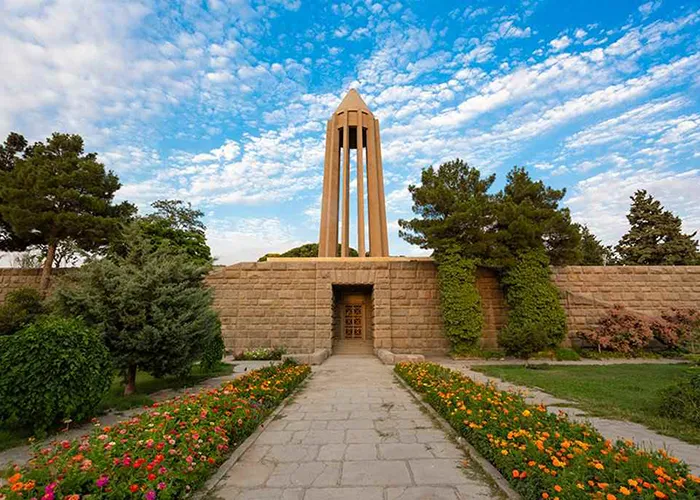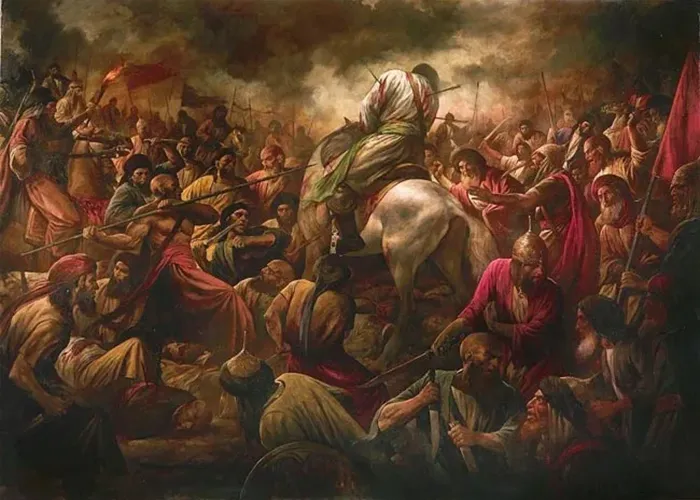Editorial – volume02 Issue30
Guiding Lights for the Week Ahead: Navigating Contemporary Challenges with Islamic Wisdom
As leaders of our Muslim communities and cultural centres, your role as guides and educators is more vital than ever. In a world brimming with complex ethical dilemmas and rapid societal shifts, the timeless wisdom of Islam offers an unparalleled compass for navigating these waters. This weekly journal aims to empower you by shedding light on the upcoming significant dates in the Islamic calendar, offering insights that will enable you to draw upon your religious foundations for informed decision-making, righteous conduct, and effective guidance for those under your care.
28th Muharram: The Demise of the Abbasid Rule
The Abbasid Caliphate, which began in 132 AH (750 CE) following the fall of the Umayyads, initially rose to power with bold claims of restoring the Prophetic legacy by promising justice, spiritual leadership, and inclusivity, particularly towards the descendants of the Prophet (PBUH). In its early centuries the empire witnessed a remarkable flourishing of knowledge, culture, and intellectual inquiry. Baghdad became a centre of civilisation, home to institutions like Bayt al-Ḥikmah (House of Wisdom), where Muslim, Christian, and Jewish scholars worked together in an unprecedented era of translation, philosophy, science, and theology.
Yet beneath this golden surface, the Abbasid state gradually fell into cycles of deep internal corruption, power struggles, and repression. After the early period, many caliphs were detached from spiritual and moral leadership, living in luxury while delegating real authority to bureaucrats or military rulers. Sectarianism was often violently suppressed, especially against the Shīʿa and other marginalised groups, despite the Abbasids’ original appeal to the supporters of Ahl al-Bayt. The brutal treatment of the Imams and their followers demonstrated a clear betrayal of the very ideals the Abbasids had used to gain power.
Over time, the Caliphate became increasingly symbolic, manipulated by foreign powers. Disunity, decadence, and neglect of Islamic justice paved the way for military decline and civil fragmentation. By the time of the Mongol invasion in 656 AH (1258 CE), the caliphs were powerless, and Baghdad – once the heart of Islamic civilisation – was left vulnerable. The sack of Baghdad by Hulagu Khan marked not just a military defeat, but the tragic culmination of a long spiritual and political decline.
Significance in Our Time and Islamic Perspective:
In our contemporary world, where Muslim communities often face various forms of external pressure and internal fragmentation, the fall of the Abbasids offers profound lessons. It highlights the dangers of complacency, disunity, and deviation from core Islamic principles. Islam teaches us that true strength lies not merely in military might or material wealth, but in spiritual fortitude, justice, and solidarity. The Quran states:
إِنَّ اللَّهَ لَا يُغَيِّرُ مَا بِقَوْمٍ حَتَّى يُغَيِّرُوا مَا بِأَنْفُسِهِمْ
“Indeed, Allah will not change the condition of a people until they change what is in themselves.” (Quran 13:11)
This verse serves as a potent reminder that our collective fate is often a reflection of our collective actions and spiritual state.
Message for Muslims in the West:
The Abbasid Caliphate began with idealistic promises but gradually lost its soul when justice, humility, and moral leadership were replaced with power struggles and oppression. For Muslims today – especially in the West, where we navigate complex social and political spaces – this history is a reminder that the strength of any Muslim community lies not in political power or visibility alone, but in integrity, accountability, and adherence to Islamic values.
Practical Challenge:
Reflect on one area in your life – family, workplace, or community – where power or influence might tempt you away from justice. This week, choose to act with fairness and transparency, even if it’s inconvenient or costly. Discuss this with your family or local youth group as a shared reflection.
29th Muharram (or 1st Safar by some accounts): The Arrival of the Captives in Shaam
The 29th of Muharram (or 1st Safar, according to some narrations) marks the sorrowful entry of the captives from Karbala – the family of Imam Husayn (AS) and his companions – into Shaam (Damascus), the capital of Yazid’s Umayyad rule. Following the horrific massacre at Karbala, the surviving women and children were paraded through cities and towns, subjected to immense hardship and public humiliation. Their arrival in Shaam, a city adorned for celebration, was the culmination of this brutal journey, a stark contrast between injustice and apparent triumph.
This event is a poignant reminder of the ultimate sacrifice made for the preservation of truth and justice, and the unwavering steadfastness of those who stood by it. The captives, led by Lady Zaynab (AS) and Imam Ali Zayn al-Abidin (AS), despite their profound grief and suffering, continued to bravely convey the message of Imam Husayn (AS) and expose the tyranny of Yazid. Their resilience in the face of unimaginable adversity serves as an eternal testament to their faith and commitment to truth.
Significance in Our Time and Islamic Perspective:
In our current era, the story of the captives’ journey to Shaam holds immense significance, particularly in the context of standing up against oppression and upholding moral integrity. It teaches us about the power of truth to transcend even the most formidable displays of tyranny. Islam consistently champions justice and resilience against falsehood. The Quran states:
وَلَا تَحْسَبَنَّ اللَّهَ غَافِلًا عَمَّا يَعْمَلُ الظَّالِمُونَ إِنَّمَا يُؤَخِّرُهُمْ لِيَوْمٍ تَشْخَصُ فِيهِ الْأَبْصَارُ
“And never think that Allah is unaware of what the wrongdoers do. He only delays them for a Day when eyes will stare [in horror].” (Quran 14:42)
This verse assures us that while injustice may prevail temporarily, Allah is ever watchful, and accountability will ultimately come. The resilience of the captives illustrates that even in defeat, the moral victory belongs to those who uphold truth.
Message for Muslims in the West:
For Muslims in the West, this occasion imparts the importance of speaking truth to power, even when it is uncomfortable or challenging. It encourages us to uphold our values and identity in societies where they may sometimes be misunderstood or misrepresented. The message of the captives is one of endurance, patience (sabr), and the unwavering commitment to justice, regardless of personal cost. It teaches us to be beacons of truth and justice in our communities.
Practical Challenge:
Encourage your community members to engage in acts of active advocacy for justice this week. This could involve writing letters to local representatives about social injustices, supporting human rights organisations, or participating in peaceful initiatives that promote fairness and equality, drawing inspiration from the steadfastness of the Karbala captives.
1st Safar: The Occurrence of the Battle of Siffin
The Battle of Ṣiffīn occurred in 37 AH / 657 CE during the imamat of Imām ʿAlī ibn Abī Ṭālib (ʿa). It was fought between the forces of Imām ʿAlī (ʿa) and Muʿāwiyah ibn Abī Sufyān, the governor of Syria.
After the assassination of ʿUthmān, Muʿāwiyah refused to recognise Imam Ali’s authority unless the killers of ʿUthmān were punished first. Imām ʿAlī (ʿa) sought to restore order before addressing the issue of ʿUthmān’s murder. This disagreement escalated into military confrontation.
The conflict unfolded over several months with negotiations initially attempted but failing. Fighting broke out in Ṣiffīn, and lasted for days with heavy casualties. Imām ʿAlī (ʿa)’s forces were gradually gaining the upper hand when Muʿāwiyah resorted to a dirty trick: he ordered his soldiers to raise copies of the Qur’ān on their spears, calling for arbitration based on the Book of Allah.
This move caused confusion and division within Imām ʿAlī (ʿa)’s army. Many, not realising the ploy, insisted on halting the fighting and accepting arbitration. Despite his objections, Imām ʿAlī (ʿa) reluctantly agreed to arbitration to prevent internal collapse.
Significance in Our Time and Islamic Perspective:
The lessons from Siffin are profoundly relevant today, particularly concerning the dangers of internal strife and the manipulation of religion for political ends. In a world grappling with sectarianism and ideological extremism, Siffin serves as a stark warning against divisiveness within the Muslim Ummah. Islam unequivocally condemns discord and calls for unity among believers. The Quran states:
وَاعْتَصِمُوا بِحَبْلِ اللَّهِ جَمِيعًا وَلَا تَفَرَّقُوا
And hold firmly to the rope of Allah all together and do not become divided. (Quran 3:103)
This verse powerfully emphasises the divine command for unity and cohesion among Muslims, reminding us that division weakens the community and deviates from the true path.
Message for Muslims in the West:
For Muslims in the West, the events of Siffin underscore the imperative of dialogue, mutual respect, and intellectual honesty in navigating differences. It cautions against falling prey to sectarianism or extremist ideologies that seek to divide rather than unite. We are called upon to foster environments of understanding and cooperation, focusing on shared values and common goals, and actively working to bridge divides within our communities and with broader society.
Practical Challenge:
Initiate a dialogue session or a workshop in your cultural centre this week on the importance of respectful disagreement and conflict resolution within the Muslim community, drawing lessons from the outcomes of Siffin. Discuss how to address internal disagreements constructively, avoiding the pitfalls of division and misunderstanding.
3rd Safar: The Birth of Sheikh al-Ra’ees Abu Ali Sina
The 3rd of Safar marks the birthday of the illustrious polymath, Abu Ali al-Husayn ibn Abd Allah ibn Sina, universally known in the West as Avicenna. Born in Afshana, near Bukhara (present-day Uzbekistan), in 980 CE, Ibn Sina was a towering figure of the Islamic Golden Age. He was a physician, astronomer, thinker, logician, and philosopher, whose intellectual contributions spanned an extraordinary range of fields. His most famous works, “The Canon of Medicine” (Al-Qanun fi al-Tibb) and “The Book of Healing” (Kitab al-Shifa), became foundational texts for centuries in both the Islamic world and Europe.
Ibn Sina’s genius lay not only in his profound understanding and synthesis of existing knowledge but also in his original contributions, particularly in medicine, where he introduced new diagnostic methods and pharmacological principles. His life epitomises the Islamic emphasis on the pursuit of knowledge (ilm) and intellectual excellence. He was a true embodiment of the Quranic exhortation to reflect upon the signs of Allah in the universe and to seek wisdom.
Significance in Our Time and Islamic Perspective:
In our contemporary world, characterised by rapid technological advancements and specialisation, the life and legacy of Ibn Sina serve as an inspiration for holistic learning and interdisciplinary thinking. He reminds us that knowledge is interconnected and that true wisdom lies in seeking understanding across various domains. Islam places immense value on knowledge, considering it a path to understanding Allah’s creation and His attributes. The Prophet Muhammad (PBUH) said:
“طَلَبُ الْعِلْمِ فَرِيضَةٌ عَلَى كُلِّ مُسْلِمٍ“ (الامالی، ج۱، ص ۵۶۹).
“Seeking knowledge is an obligation upon every Muslim.”
This Hadith underscores the religious imperative for Muslims to continuously pursue knowledge throughout their lives, not just in religious sciences but in all beneficial fields.
Message for Muslims in the West:
For Muslims in the West, Ibn Sina’s legacy offers a powerful message: excellence in all fields of knowledge is an integral part of our Islamic heritage and duty. We are called to contribute significantly to modern advancements, whether in science, medicine, technology, or the humanities. His life encourages young Muslims to aspire to intellectual greatness, to innovate, and to be at the forefront of discovery, thereby enriching both their communities and wider society.
Practical Challenge:
Encourage young people in your community to explore a field of knowledge outside their immediate academic or professional comfort zone this week, inspired by Ibn Sina’s polymathic pursuits. Organise a mentorship program or invite guest speakers from diverse professional backgrounds to share their journeys and highlight the Islamic encouragement for intellectual curiosity and excellence.
news via inbox
Subscribe to the newsletter.




